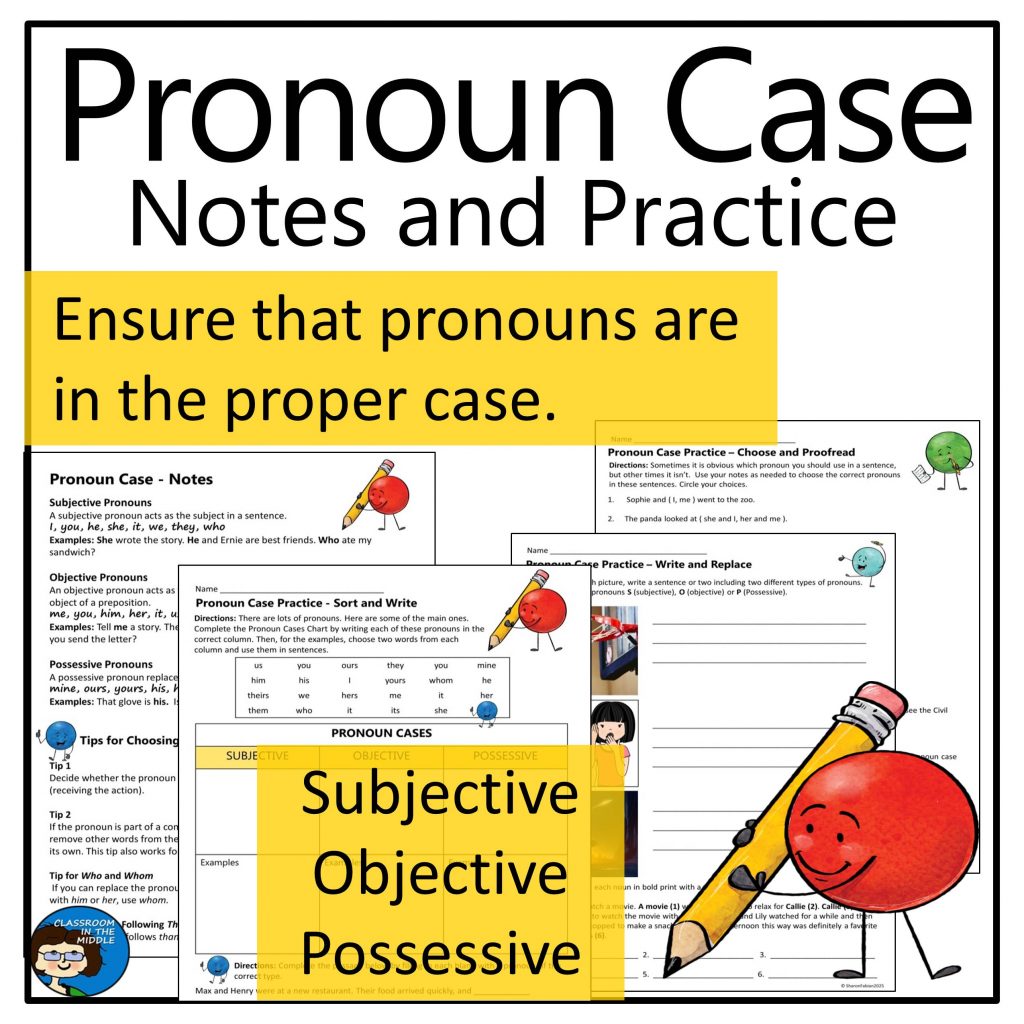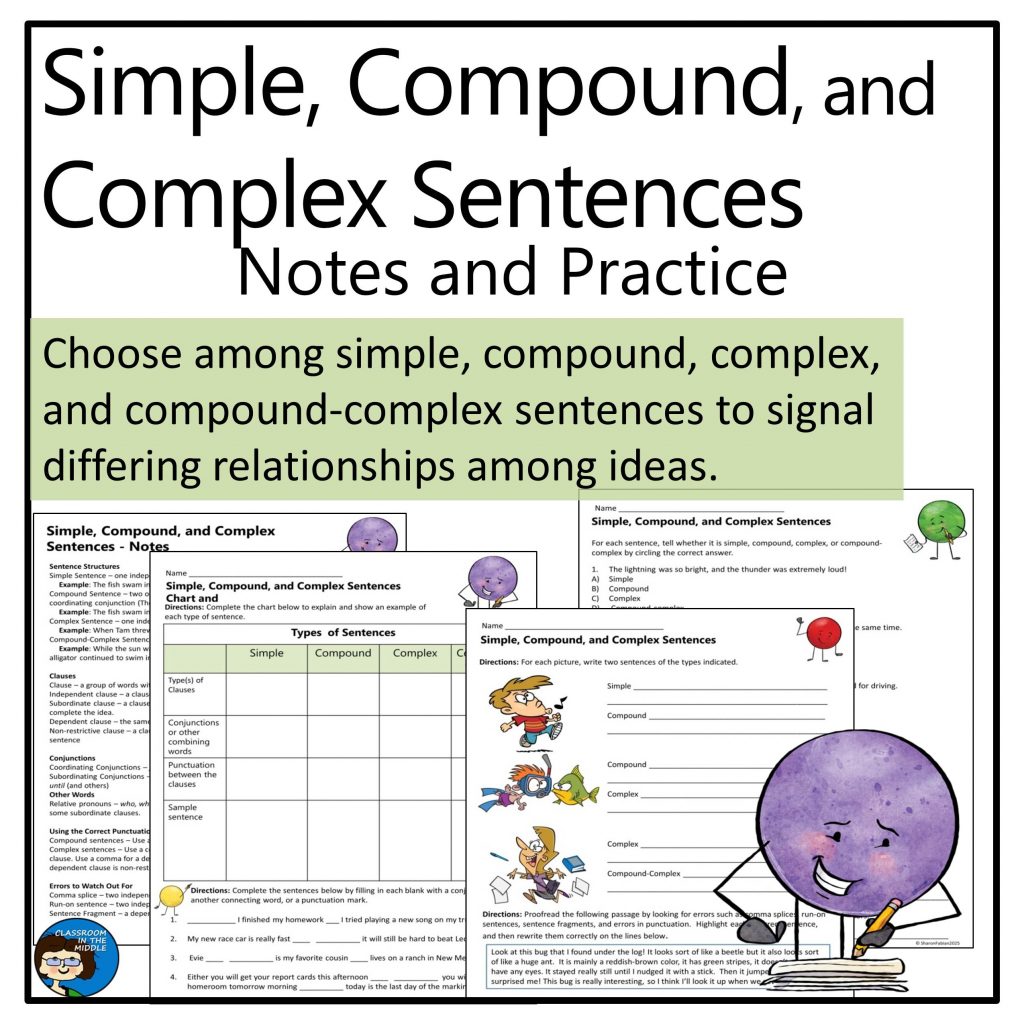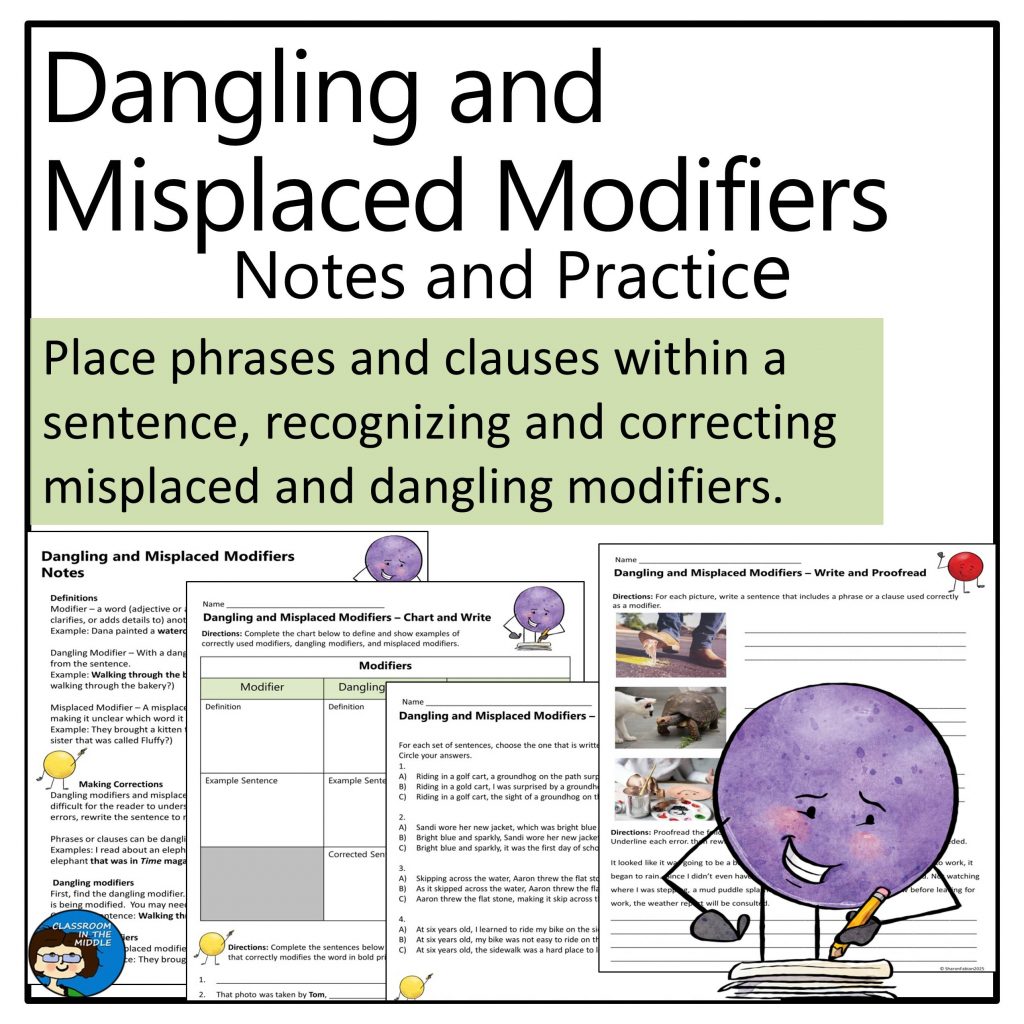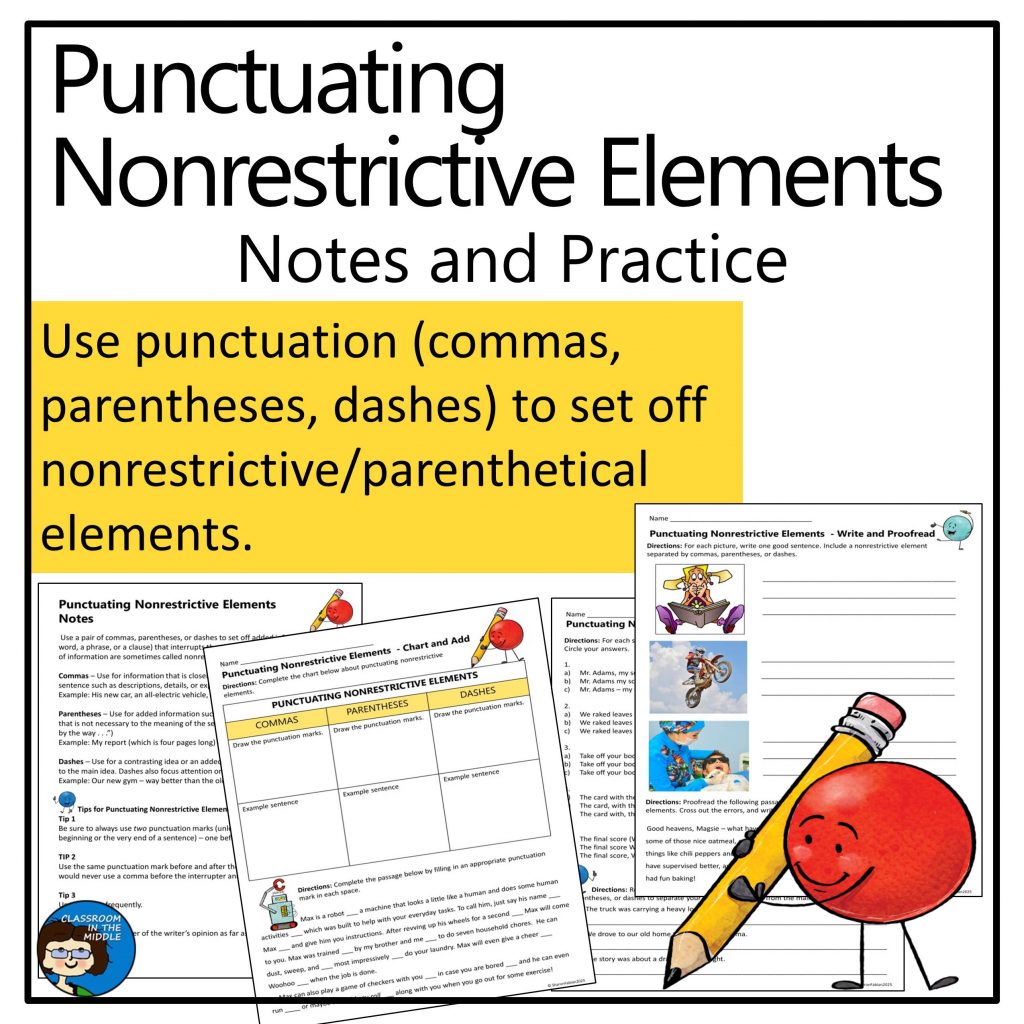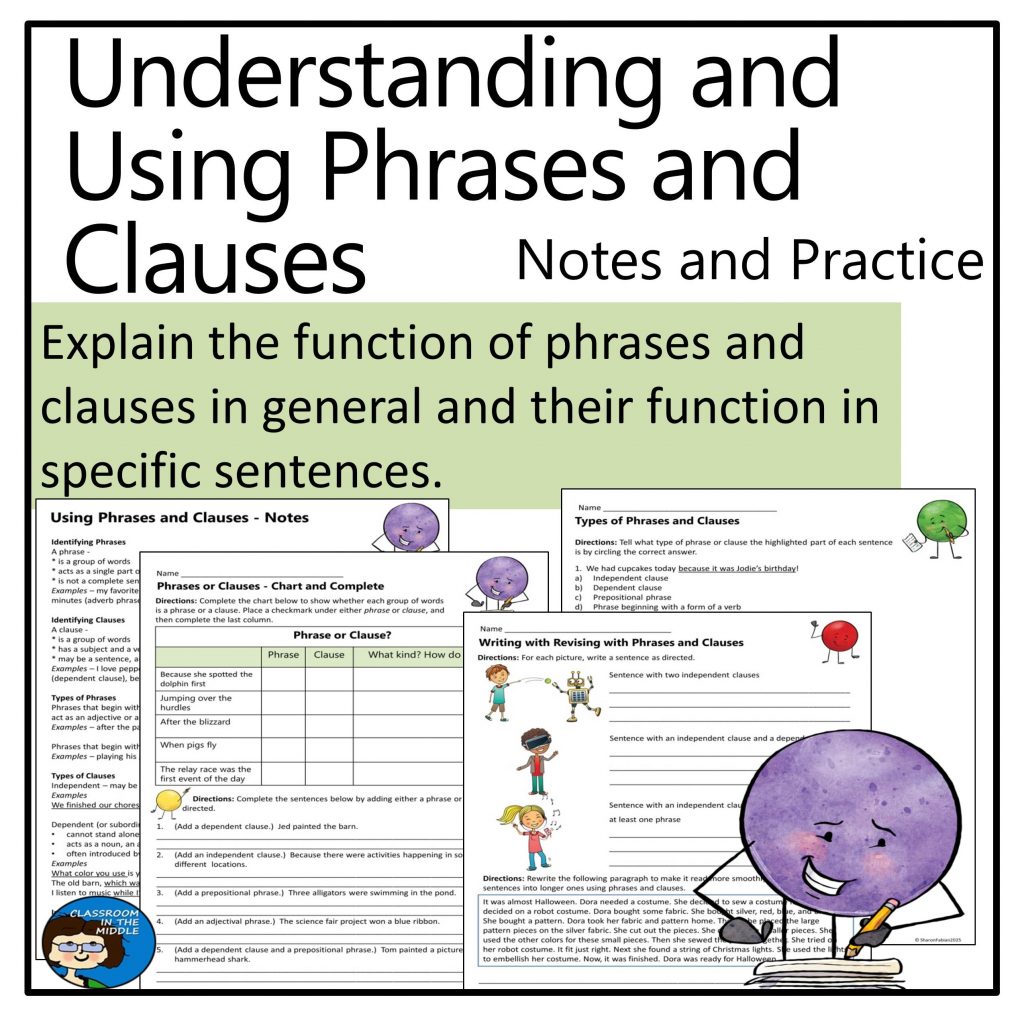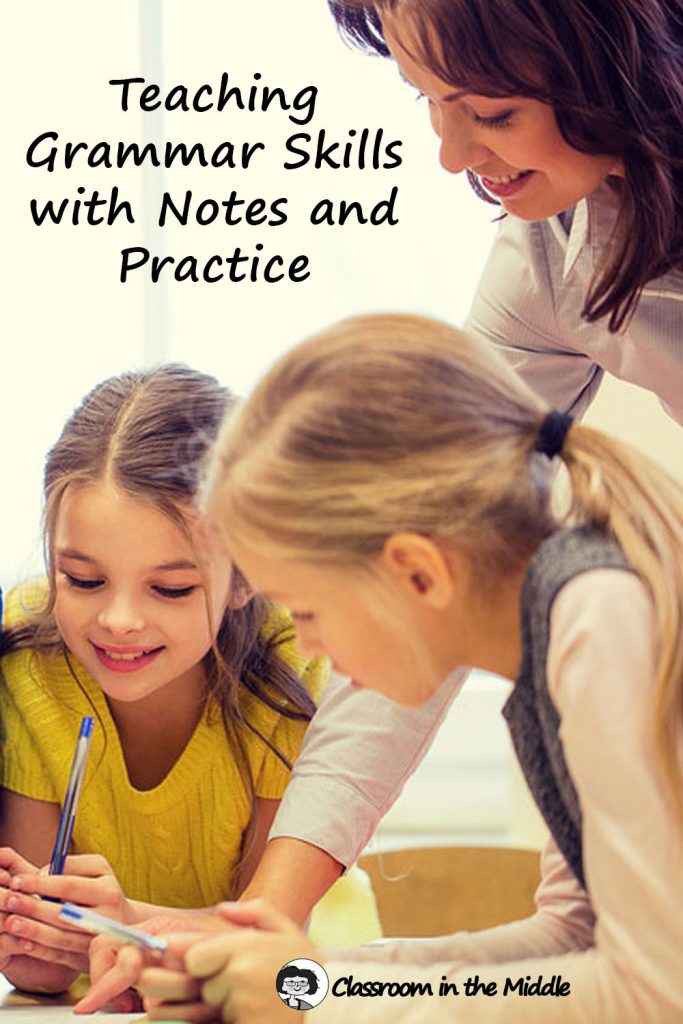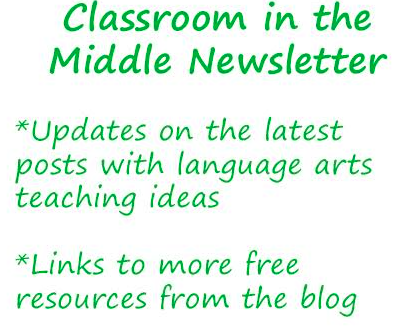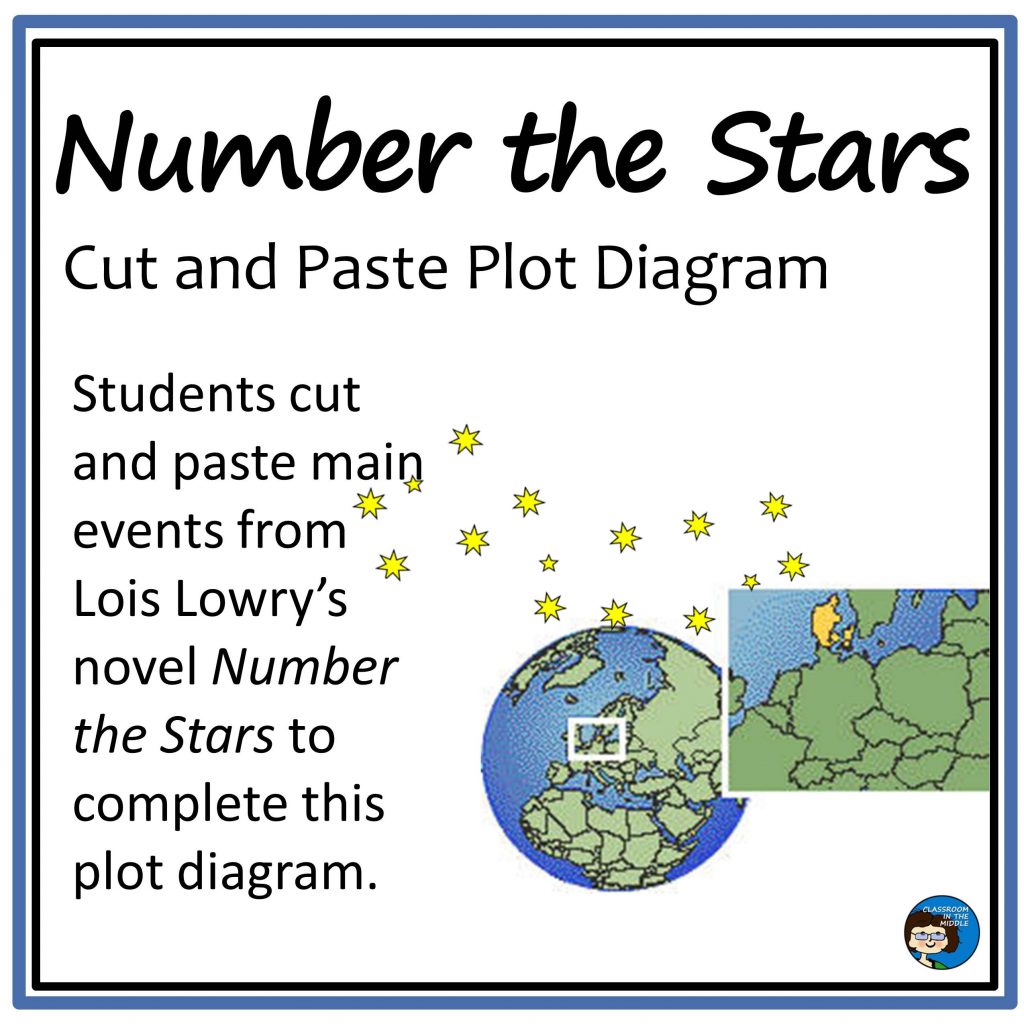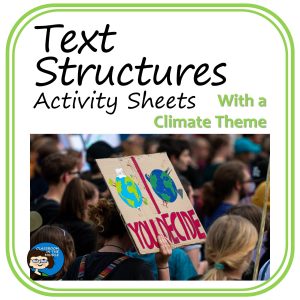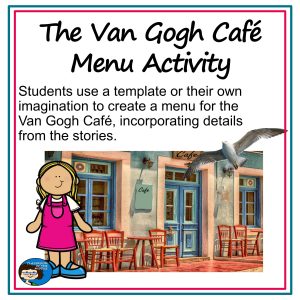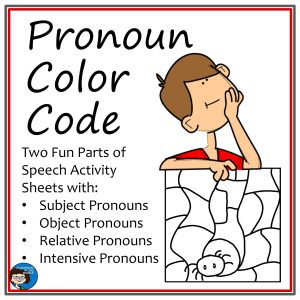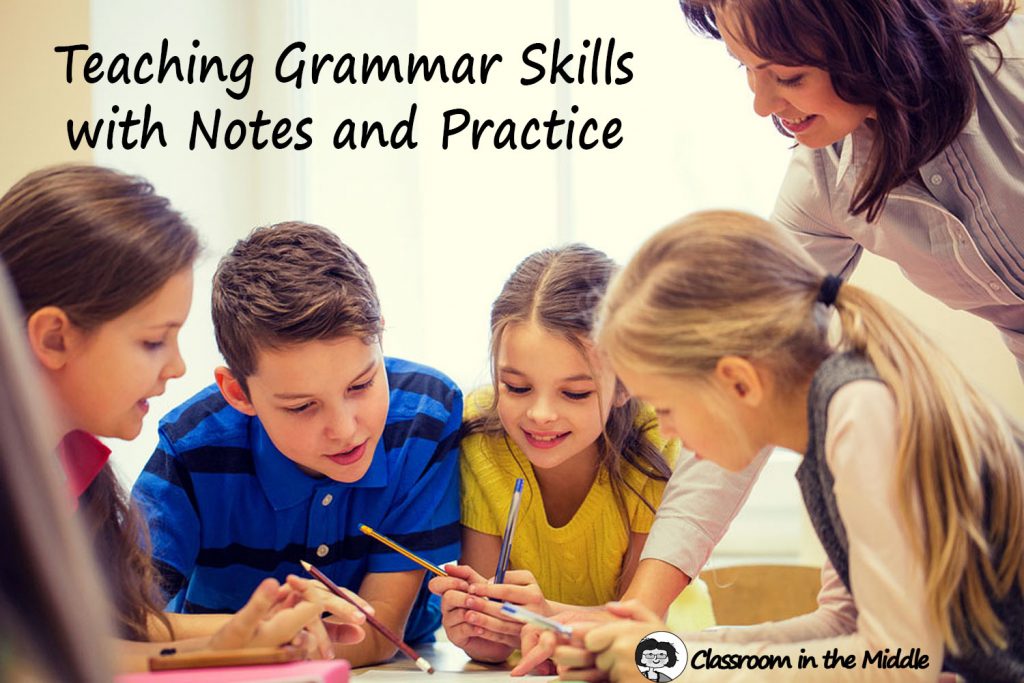FREE LANGUAGE ARTS RESOURCES
- Number the Stars Plot Diagram
- Text Structures
- The Van Gogh Cafe Menu Activity
- Pronouns Color Code – Print and Easel Versions
SHOP CLASSROOM
IN THE MIDDLE
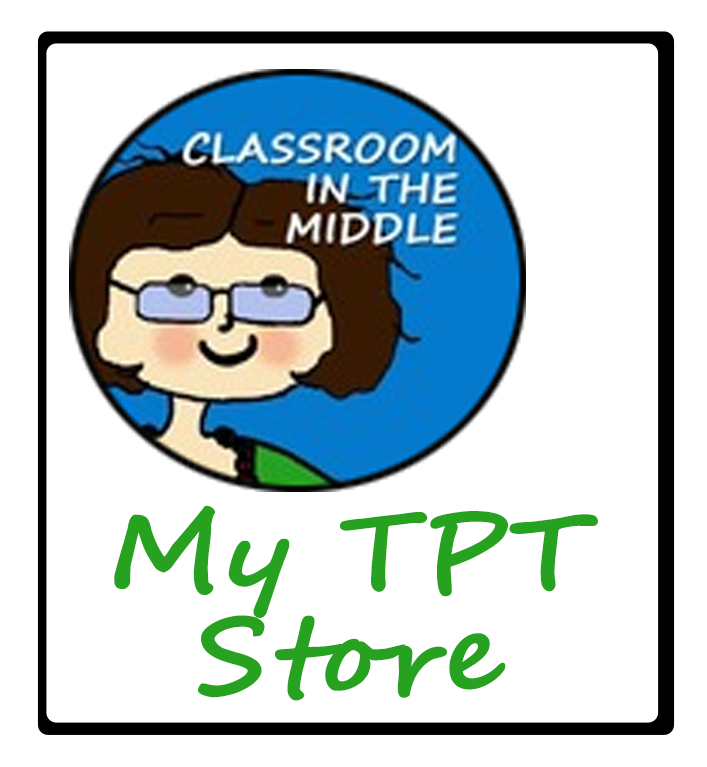
Teaching Grammar Skills with Notes and Practice
Many years ago, English class was all about grammar and parts of speech. Lessons in student’s grammar books meticulously went through each and every grammar rule, and students learned each part of speech in detail.
Today, of course, things have changed. Language arts teachers cover a huge variety of topics throughout each school year as they teach students reading, writing, speaking, and listening skills.
Now, grammar may be covered more as a proofreading skill than as a subject of its own. And sometimes this works great. After all, there is no better way to learn than by doing, and working on editing their own compositions can really solidify grammar skills for students who have the necessary knowledge. But sometimes, more detailed instruction is needed!
Partially, it depends on what students have learned in previous grades. As students can be quick to tell their language arts teachers, the English curriculum can be quite repetitive. By the time they reach middle school, students have probably addressed many grammar topics, most likely including certain parts of speech, year after year. And so, for instance, if a student has learned a lot about adjectives in, say, the previous three grades, it makes sense to move on to putting that knowledge to use.
But for other grammar topics, it makes sense to teach the information directly. But what to teach – that’s the big question! The language standards in the Common Core or your own state’s standards are a good starting point for finding those specific skills that kids need to master by a certain grade level.
Some of those standards can be very specific (nonestrictive elements! perfect verb tenses! dangling modifiers!) and lend themselves to new and surprisingly detailed lessons that you kids won’t be saying they have seen before!
In fact, that’s where I started when I was planning my new line of grammar resources – my Notes and Practice sets. Here are the topics I’ve addressed so far.
- Using Commas, Parentheses, and Dashes to Set Off Nonrestrictive Elements (a sixth-grade standard)
- Understanding and Using Phrases and Clauses (seventh-grade)
- Simple, Compound, and Complex Sentences (seventh-grade)
- Pronoun Case (sixth-grade)
- Dangling and Misplaced Modifiers (seventh-grade)
- Perfect Verb Tenses (fifth-grade, still working on this one)
One thing that I noticed as I was working on the notes that begin each set was that some of the topics are surprisingly complex for upper-elementary and middle school students.
And then, some of them just sound complicated. For example, when I started working on perfect verb tenses, I had to look them up to remind myself just what perfect tenses were, and I’d be willing to bet that very few middle school kids could tell you what they are (and maybe even some more teachers, too). Once you remember what the term means, however, it turns out that this one isn’t complicated at all. Perfect tenses are just the ones that start with have, has, or had!
For each of these little resources, I decided to stick strictly to a single standard. Each set includes a one-page note sheet and three practice sheets that have a variety of practice activities on the one topic.
Usually, I start with a fill-in chart – to give the kids a quick picture of what they are working with – and follow that with a mix of short written and multiple-choice exercises – for a little variety. You can check out the sets that I have completed so far here.
And right here, you can see what one of the resources looks like. This is the note sheet and the three activity sheets for dangling and misplaced modifiers.
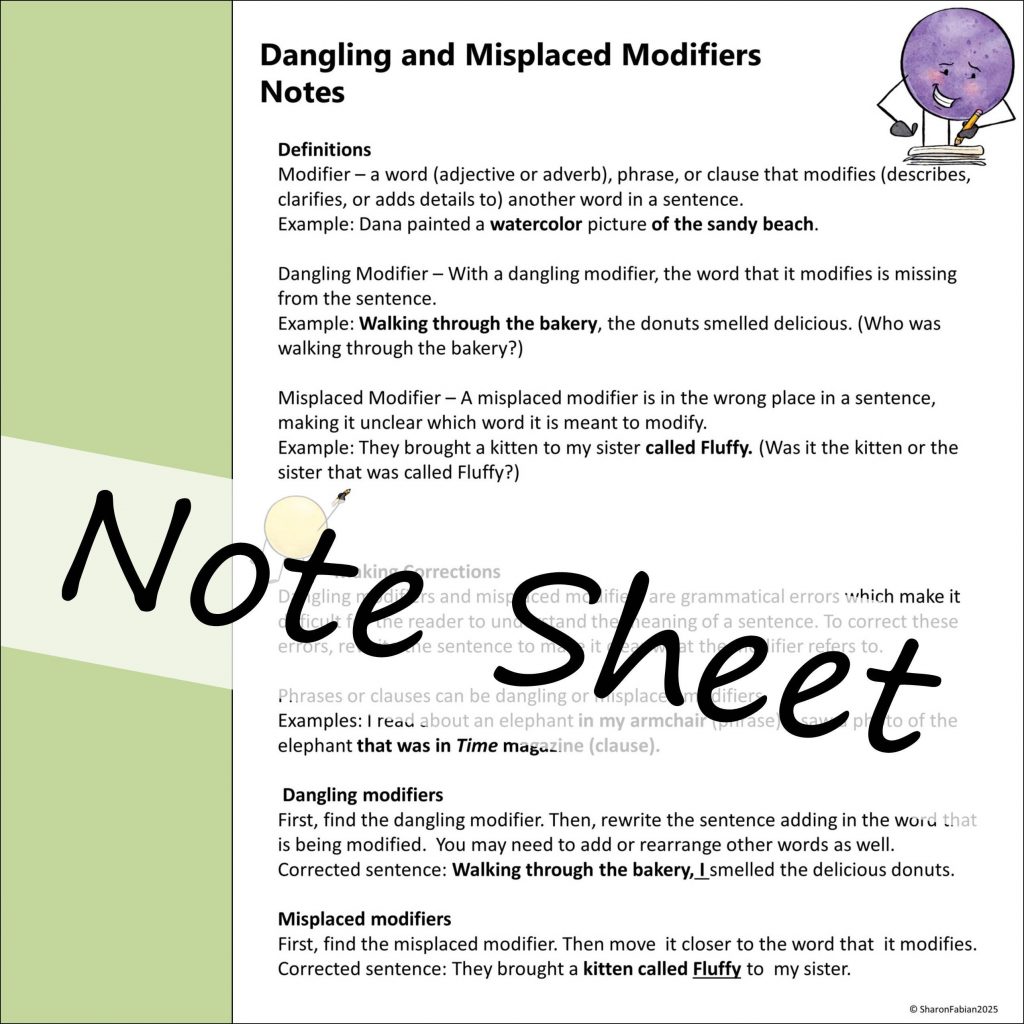
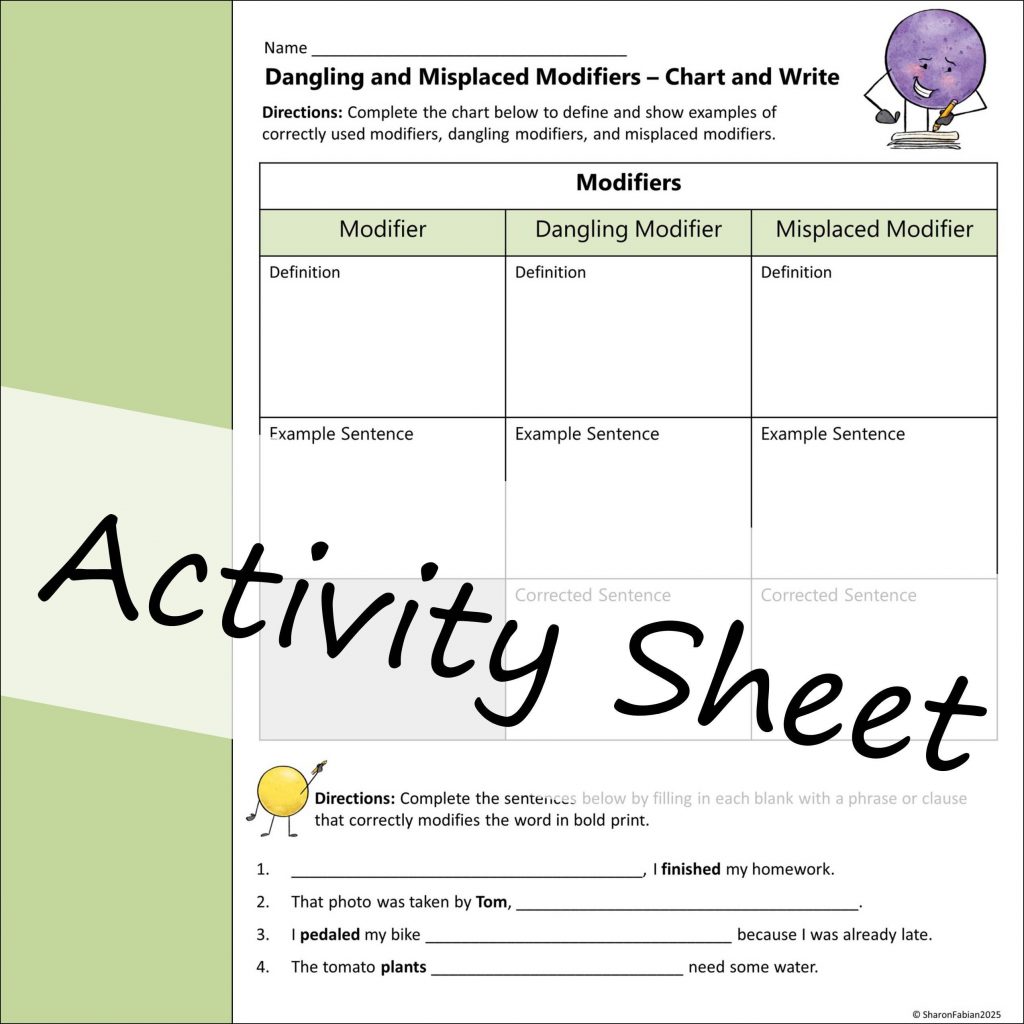
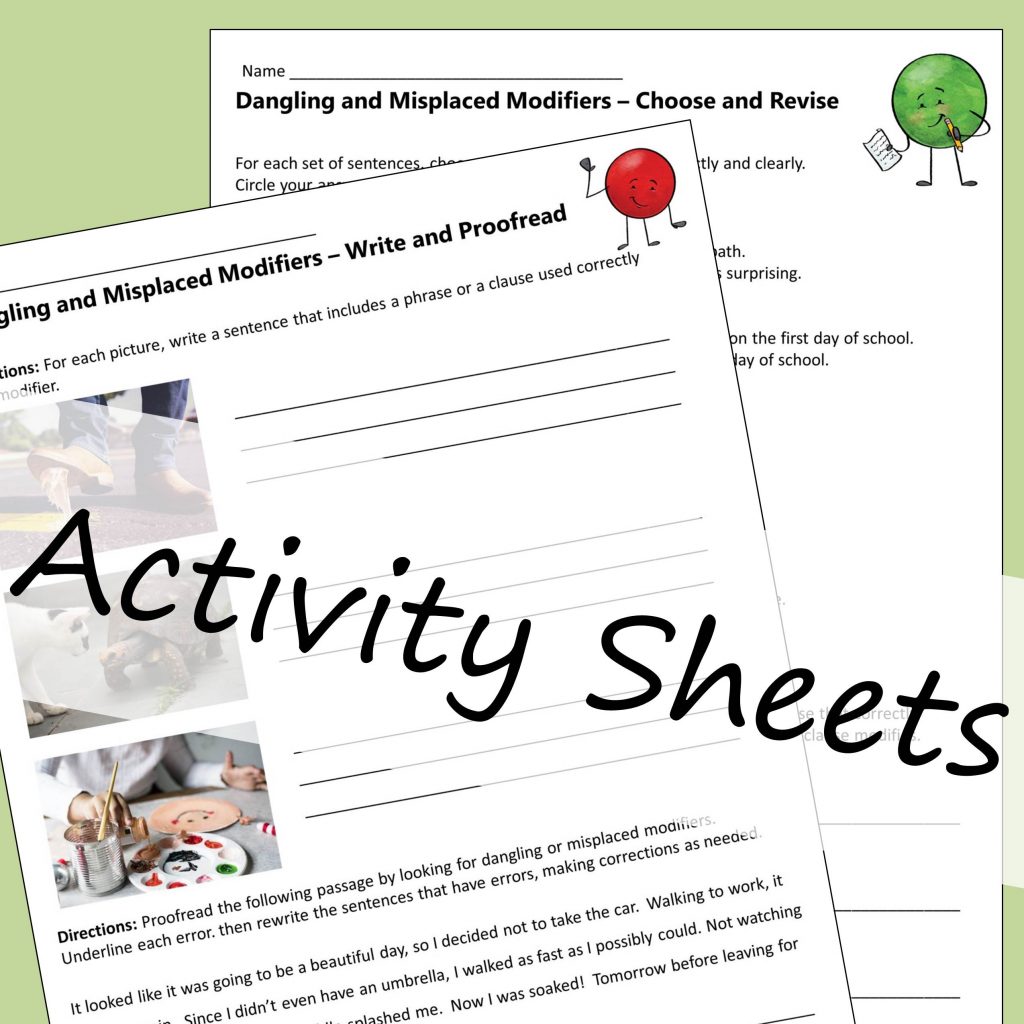
Notes and Practice Sets
